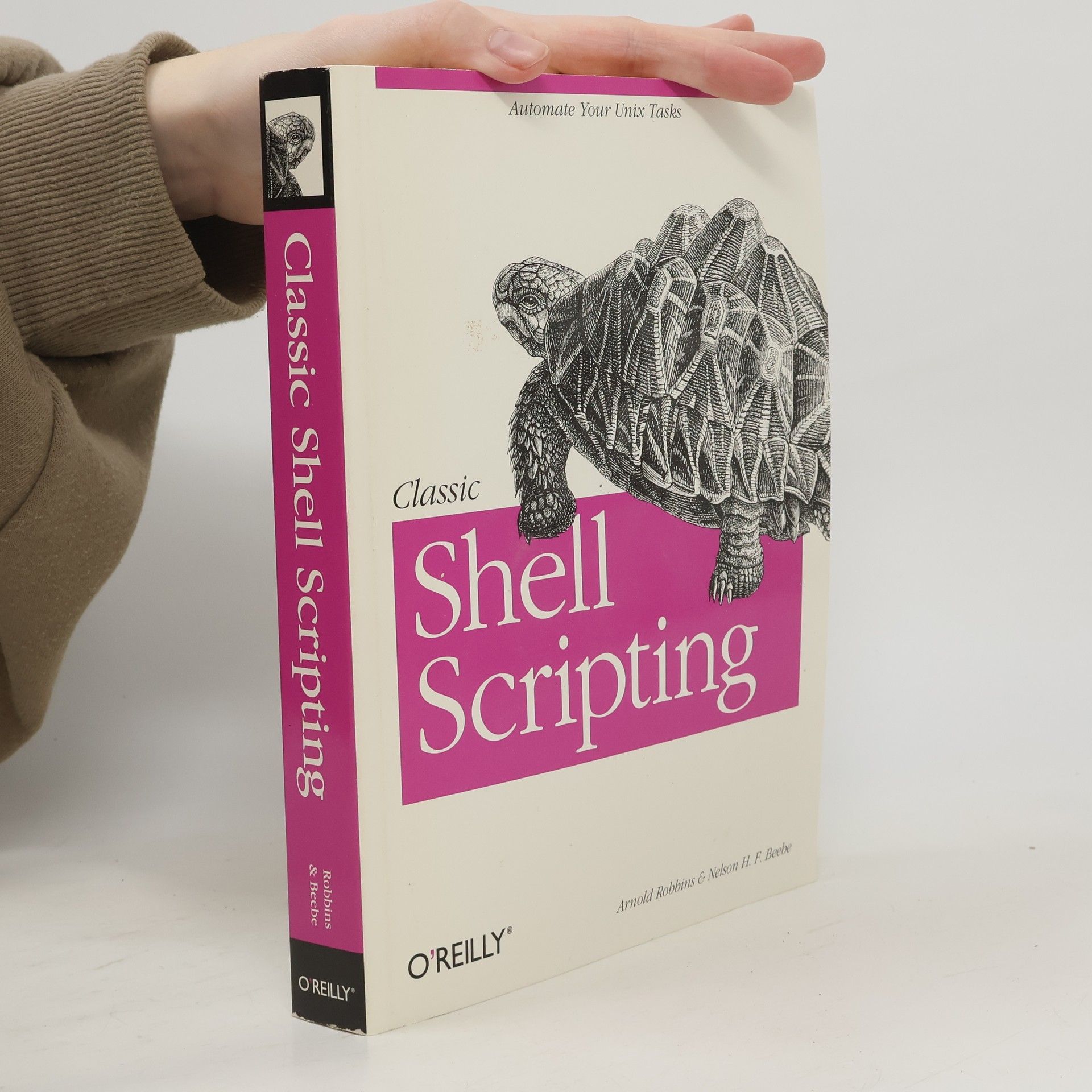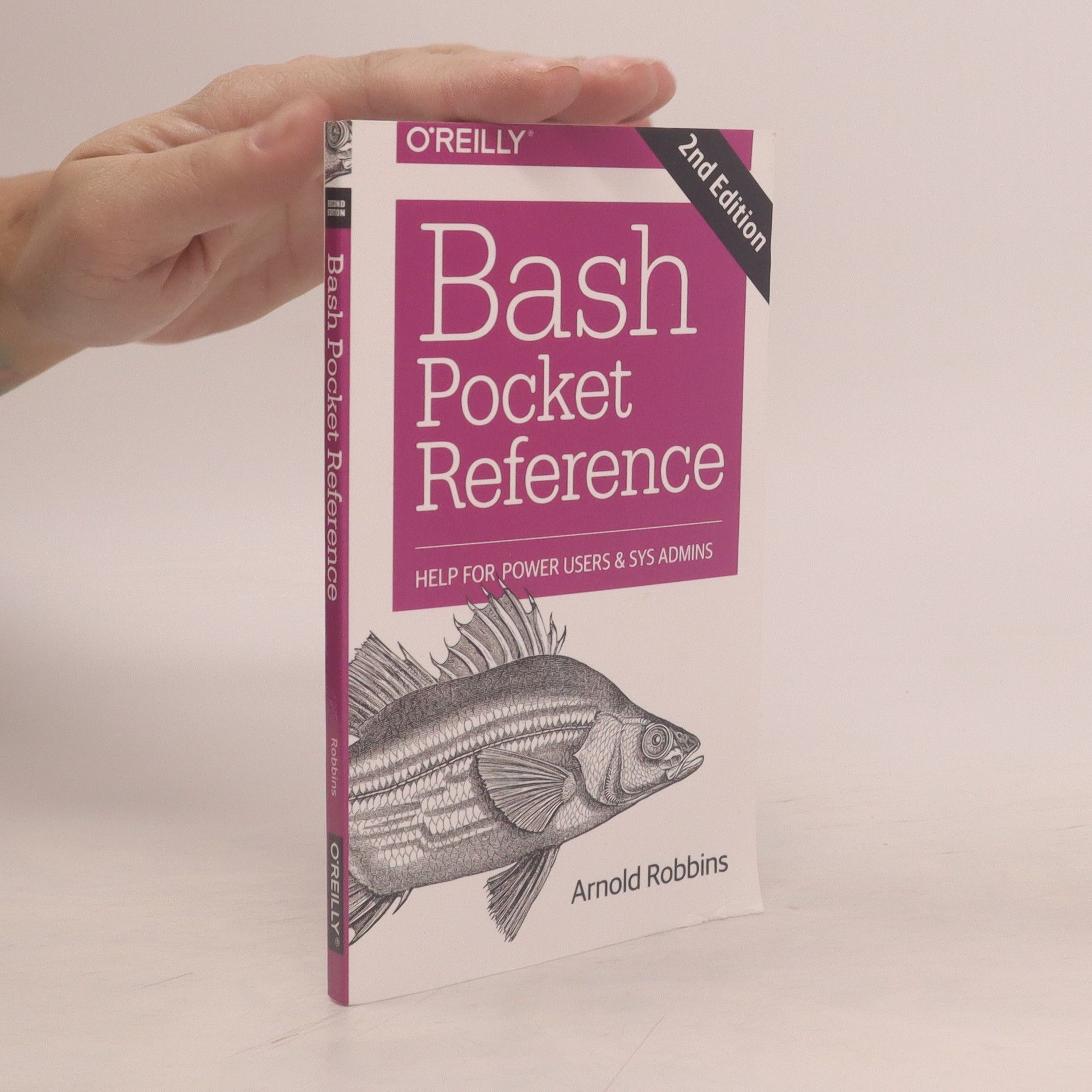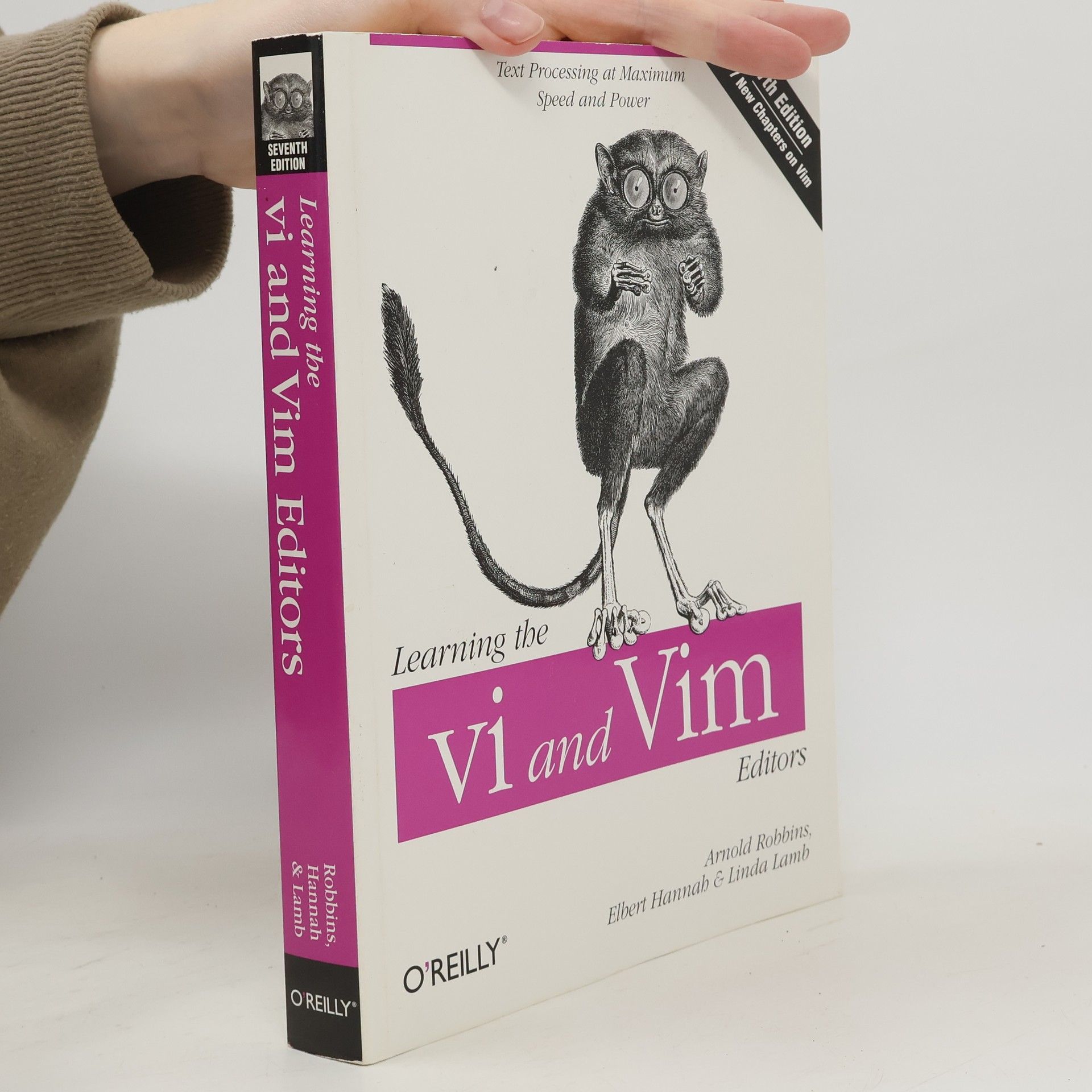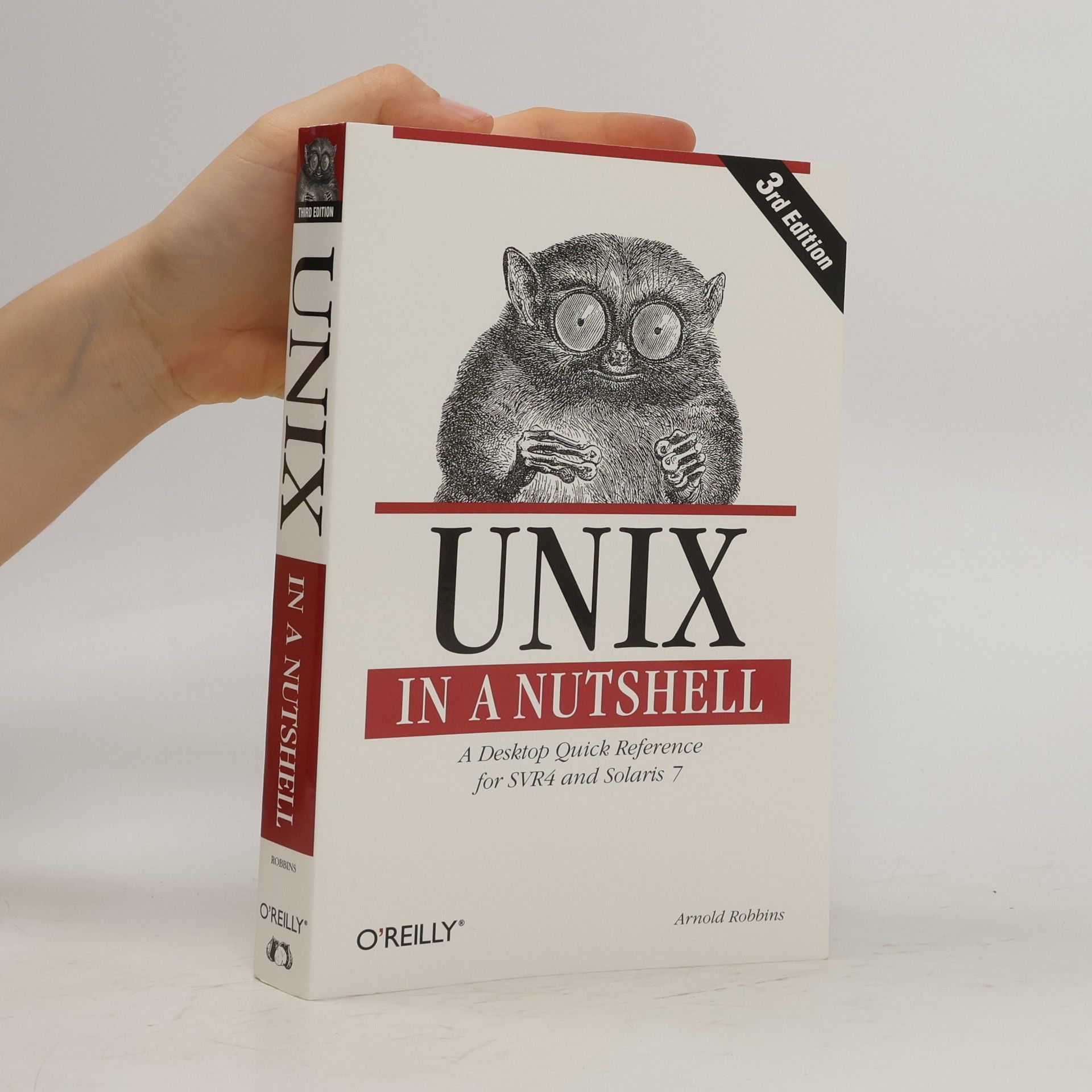A book on how to work with the Bash shell when interacting with Mac OS X, Linux and other Unix-like systems.
Arnold D. Robbins Books






Tough Guys
- 256 pages
- 9 hours of reading
There is only one sport, outside of actual combat disciplines, where two participants can square off in old fashioned, bare-knuckle pugilism without facing swift ejection. Hockey has long held a place for two willing combatants, and it has been said that "no one goes for popcorn during a fight." Fans know what to expect on the ice from players with nicknames like Knuckles, The Grim Reaper, The Bruise Brothers, or The Hammer. Yet off the ice, the men who step into these brutish roles are often the kindest, gentlest and most popular players on a team--not to mention some of the best storytellers to ever lace up skates. Tough Guys honors the experiences of these NHL enforcers throughout history. Author and longtime broadcaster Dale Arnold profiles fighters across eras, sharing their journeys, struggles, and moments of glory.
Effective awk programming
- 456 pages
- 16 hours of reading
"Effective AWK Programming" covers every aspect of the AWK 3.0.3 and 3.0.4 language. It offers up-to-date coverage of the POSIX standard for AWK, and distinguishes standard AWK features from GNU AWK-specific features. The author sheds light on "dark corners" of the language, devotes two chapters to example programs, and includes a summary of how the AWK language evolved.
vi and Vim Editors Pocket Reference
- 85 pages
- 3 hours of reading
vi and Vim are immensely powerful tools for anyone working with Unix, Linux, or Mac OS X, but there are far too many commands for anyone to remember. This handy little book puts all of the essential information about vi and Vim at your fingertips, in a format that makes browsing easy.
Vi editor
- 66 pages
- 3 hours of reading
For many users, working in the UNIX environment means using vi, a full-screen text editor available on most UNIX systems. Even those who know vi often make use of only a small number of its features.The vi Editor Pocket Reference is a companion volume to O'Reilly's updated sixth edition of Learning the vi Editor , a complete guide to text editing with vi . New topics in Learning the vi Editor include multi-screen editing and coverage of four vi vim , elvis , nvi , and vile .This small book is a handy reference guide to the information in the larger volume, presenting movement and editing commands, the command-line options, and other elements of the vi editor in an easy-to-use tabular format.
Classic shell scripting
- 534 pages
- 19 hours of reading
Shell scripting skills never go out of style. It's the shell that unlocks the real potential of Unix. Shell scripting is essential for Unix users and system administrators-a way to quickly harness and customize the full power of any Unix system. With shell scripts, you can combine the fundamental Unix text and file processing commands to crunch data and automate repetitive tasks. But beneath this simple promise lies a treacherous ocean of variations in Unix commands and standards. Classic Shell Scripting is written to help you reliably navigate these tricky waters.Writing shell scripts requires more than just a knowledge of the shell language, it also requires familiarity with the individual Unix why each one is there, how to use them by themselves, and in combination with the other programs. The authors are intimately familiar with the tips and tricks that can be used to create excellent scripts, as well as the traps that can make your best effort a bad shell script. With Classic Shell Scripting you'll avoid hours of wasted effort. You'll learn not only write useful shell scripts, but how to do it properly and portably.The ability to program and customize the shell quickly, reliably, and portably to get the best out of any individual system is an important skill for anyone operating and maintaining Unix or Linux systems. Classic Shell Scripting gives you everything you need to master these essential skills.
Learning the vi and Vim Editors
- 456 pages
- 16 hours of reading
A guide to vi and Vim covers the basics of text-editing along with information on such topics as macros, buffers, Unix commands, scripts, gvim, and vi clones. Learn about Vim's enhancements and its availablity for many other operating systems.
You may have seen Unix quick-reference guides, but you've never seen anything likeUNIX in a Nutshell. Not a scaled-down quick reference of common commands,UNIX in a Nutshellis a complete reference containing all commands and options, along with generous descriptions and examples that put the commands in context. For all but the thorniest Unix problems, this one reference should be all the documentation you need. The third edition ofUNIX in a Nutshellincludes thorough coverage of System V Release 4. To that, author Arnold Robbins has added the latest information about: Sixty new commands inThe Alphabetical Summary of Commands Solaris 7 Shell syntax (sh,csh, and the 1988 and 1993 versions ofksh) Regular expression syntax viandexcommands, as well as newly updated Emacs information sedandawkcommands troffand related commands and macros, with a new section onrefer make, RCS (version 5.7), and SCCS commands In addition, there is a new Unix bibliography to guide the reader to further reading about the Unix environment. If you currently use Unix SVR4, or if you're a Solaris user, you'll want this book.UNIX in a Nutshellis the most comprehensive quick reference on the market, a must for any Unix user.
For many users, working in the UNIX environment means using vi, a full- screen text editor available on most UNIX systems. Even those who know vi often make use of only a small number of its features. This handbook is a complete guide to text editing with vi. Quickly learn the basics of editing, cursor movement, and global search and replacement. Then take advantage of the more subtle power of vi. Extend your editing skills by learning to use ex, a powerful line editor, from within vi. Topics covered include: Basic editing Moving around in a hurry Beyond the basics Greater power with ex Global search and replacement Customizing vi and ex Command shortcuts Also includes a pull-out quick-reference card.
Sed and Awk
- 432 pages
- 16 hours of reading
In Sed & Awk, Dale Dougherty and Arnold Robbins describe two text manipulation programs that are mainstays of the UNIX programmer's toolbox. This new edition covers the Sed and Awk systems as they are now mandated by the POSIX standard.



